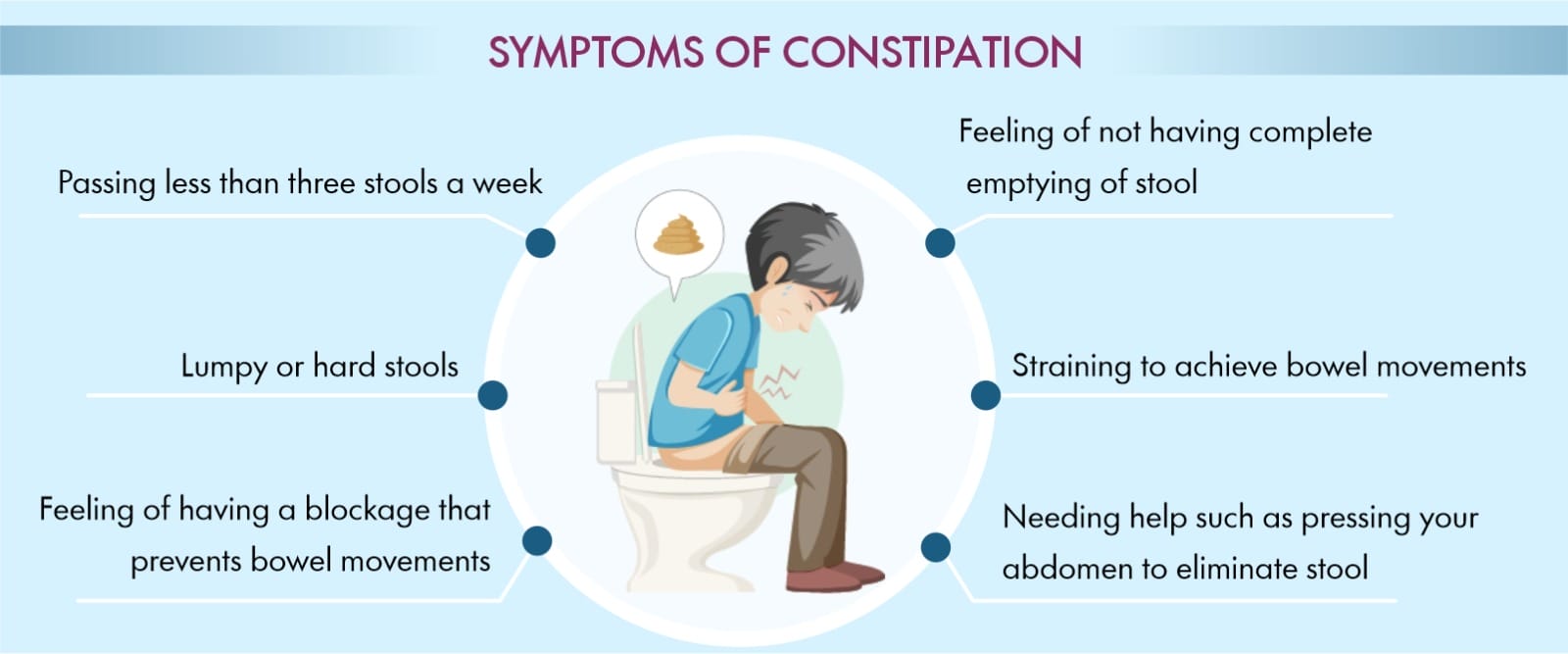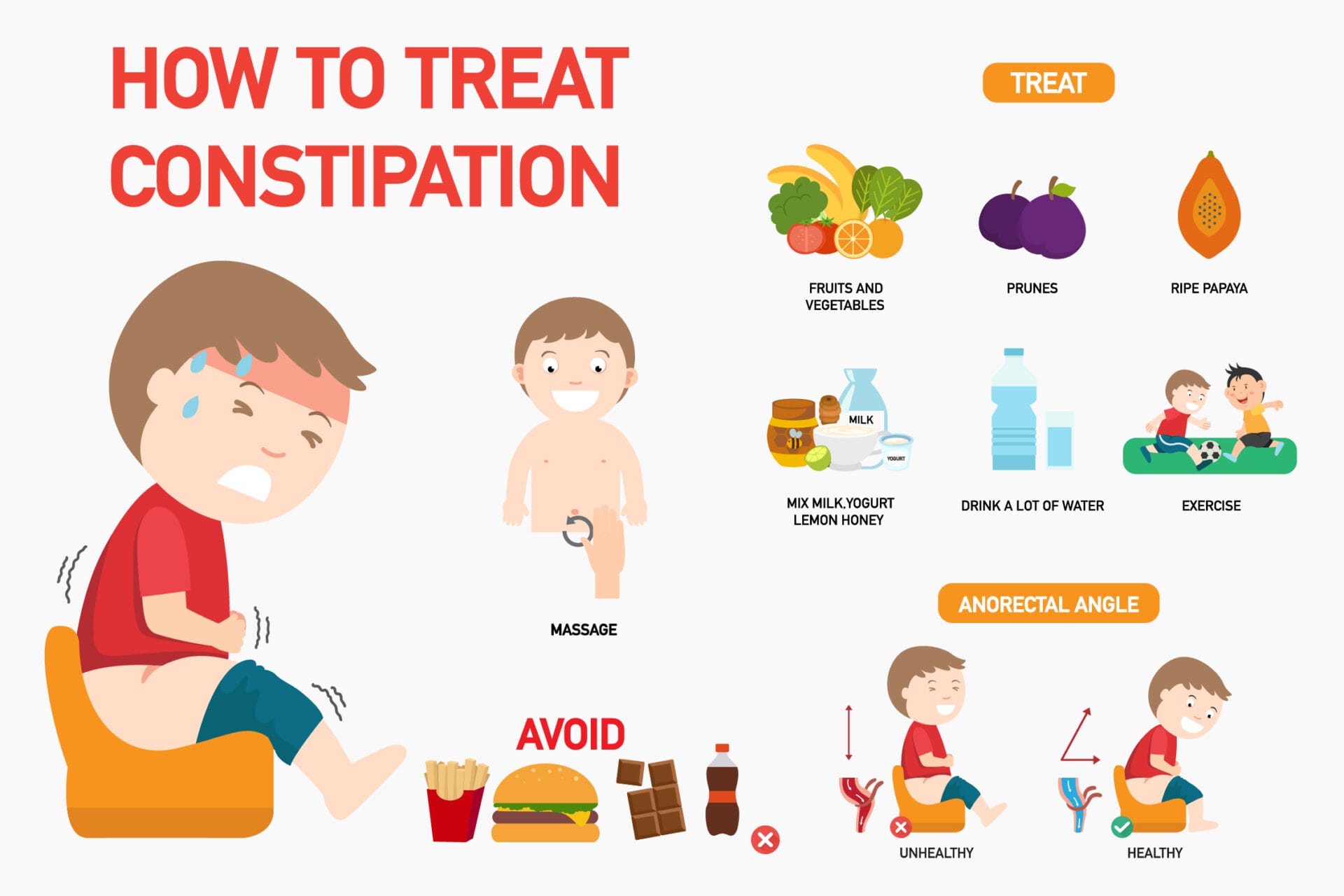Though constipation may be a common problem, it is still uncomfortable and stressful when it strikes.
What is constipation though?
Constipation is when a person has difficulty passing stool. It can also cause pain, bloating, nausea, and other symptoms. Depending on the cause, medical treatments and home remedies may help.
This can happen due to a number of reasons. The slower the food stool moves through the digestive tract, the more the colon absorbs water from it, hence the harder the feces becomes.
At times a person may require urgent medical attention especially where constipation results to a blockage in the large or small intestine, this blockage normally may be due to lack of fiber in your diet or lack of rehydration.

Symptoms of constipation.
- Difficulty passing stool
- Straining when passing stool
- Passing less stool than ususla
- Dry, lumpy or hard stool
- Abdominal pain or cramping
- Feeling bloated
- Loss in appetite
Happily, most people who experience these symptoms can easily get a relief with simple home remedies for example diet changes, hydration and use of laxatives.
Here is a summary of the ways through which we can easily manage constipation at home.
- Hydration
It’s one of the simplest ways to deal with constipation, but most people tend to assume until they are caught up by it. Water, other liquids and foods with high water content can help fiber work better, making stool softer and easier to pass.
2. Osmotic laxatives
Osmotic laxatives are a type of laxatives used for treating constipation. In the intestine, osmotic agents pull water from the surrounding tissues using a process known as osmosis. Excess moisture in the intestine results in softer stools that are easier to pass. It is vital to drink lots of water while taking osmotic laxatives to improve their efficiency and to decrease the possibility of gas and cramps. Examples are; glycerine, lactulose, sorbitol, macrogol and polyethylene glycol.
3. Stool softeners
These are medications that can help treat mild constipation, they are classified under emollient laxatives. They cause fats and water to penetrate to the stool, making it move more easily through the digestive system. Examples include ducosate, Colace.
4. Lubricants
Lubricants, such as mineral oil, help stools slide out with more ease. They may be a good choice if your stools feel stuck low in your bowels, if you have an internal tear or “fissure,” or if you have pain from hemorrhoids during bowel movements. Mineral oil is taken by mouth and can cause pneumonia if aspirated into the lungs.
5. Stimulant laxatives
These are laxatives that stimulate the lining of the intestine to propel the stool out. They provide a quick relief but should only be used when necessary, examples include senokot(senna) and bisacodyl tablets(dulcolax).
6. Enema
Enemas are another option for constipation relief. They mechanically flush stool from the rectum and lower part of the large intestine.
An enema works by loosening the stool in the rectum, thereby triggering the rectal muscles to squeeze as a reaction to their being stretched. An example is fleet enema.
7. Dietary fiber
Fiber needs vary by age and sex, but generally adults should get 22 to 34 grams of fiber a day.
There are two different types of fiber: soluble and insoluble. Both types of fiber are important for health, digestion, and preventing diseases. But they act differently in the body.
Soluble fiber absorbs the water in your food. In doing so, it turns to gel, which slows digestion. Some types of soluble fiber may help lower cholesterol and the risk of heart disease. Soluble fiber is found in the following foods: oat bran, barley, nuts, seeds, beans, lentils, peas and some fruits and vegetables
Insoluble fiber, on the other hand, doesn’t absorb water and adds bulk to your stool. It can help food pass more quickly through the stomach and intestine, relieving constipation. Insoluble fiber can be found in foods such as: wheat bran, vegetables, whole grains.
8. Fiber supplements
For individuals who are not obtaining their daily fiber needs through diet, fiber supplements are a convenient way to enhance a low-fiber diet.
Fiber supplements vary in their active ingredients. Some have soluble fibers like; psyllium and methylcellulose, while others contain insoluble fiber, wheat bran.
Fiber supplements are among the safest ways to promote regular bowel movements, though they do act slowly and can cause gas and bloating. You should drink plenty of fluids when taking supplements.
If a person has severe symptoms or discomfort, or if symptoms get worse, it is best to contact a doctor for advice.



